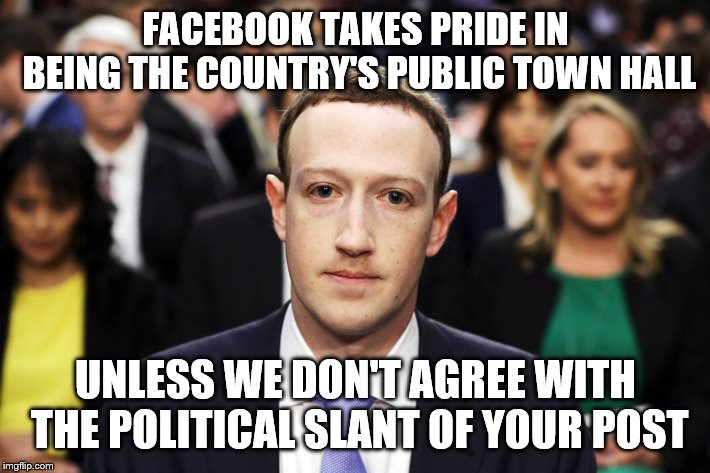I think the headline mischaracterizes the intent of the ban. It didn’t fail to dent Facebook usage. The ban succeeded, showing no reduction in Facebook traffic despite reducing access to content.
It wasn’t a ban. It was a tax designed to funnel money into the media companies that own our politicians.
It failed spectacularly because it shows that Canadians don’t visit Facebook for news coverage, and that Meta was 100% correct to not pay for access to content that its users don’t care about.
I agree that the tax was designed to funnel money into the media oligopoly to which our politicians are beholden.
But like the headline, you are conflating the tax with the ban. They aren’t two sides of the same coin, the ban (or maybe more accurately boycott) is a reaction to the tax.
Was it a tax? I thought the law simply required third parties to actually pay for reproducing the work of news outlets? Basically paying for paid work, rather than just stealing it?
You’re right I was duped by Google.
It was a ban on Meta’s side. Of course, not with an intent to dent their own user’s usage. That part does not logically follow.
The headline (and probably the article) was written by machine, is all. That has been standard practice in the news business for many years now. Just another machine-generated hallucination that we have come to know and love.
Reuters bad headline fails to dent click-through ratio
People does not go on FB to read news!!! It’s perfectly normal that it has no impact.
I go to Facebook nowadays for 3 reasons:
A) Post memes to give my friends a smile or chuckle.
B) Check on a group or two (50% of the time related to memes also lol.
C) Someone messaged me.If I want news, I go the same places I’ve already been using for 20+ years and it aint Facebook.
That was never the goal.
I use facebook to get update about my favourite artists, people i know and groups about my hobbies and not to see news that will add nothing to my life
Lol you a baby boomer ?
WTF difference does it make?
It does. Baby boomers are not that bright when it comes to technology. Yea they might say the boomers invented the internet and I say ,sure may be a handful of them but others are dumb af. If anyone questions it, come to my work and watch all these boomers struggling to turn on their computer.
The usage described by small44 is an excellent way to use social media. Real life hobbies and interests bring personal fulfillment, and using social media as a tool for exploring those interests is smart, not dumb.

Please grow up, soon.
Jesus, what a dumbass.
Come over to my workspace. See how long it takes you to go “WTAF!?” over the tech I work with.
You arrogant little snot.
WTAF

No, i just like to use what is useful to me. I also don’t like content restriction, facebook is the least restrictive with the type of media you can post

I couldn’t care less about politics

You are childish
So, no impact on Facebook. What about the news agencies? Are they losing ad revenue because of fewer eyeballs on their content?
Real news isn’t what gets circulated on Facebook, so who cares.
What? What is real news then? Meta is also Instagram btw
Apparently, people have been sharing Canadian news links, thus the controversy.
I’m not sure what they expected would happen. Regulators can’t help but show off how little they understand about the internet.
That’s not the goal here, the headline misrepresents the issue
I wasn’t reffering to the headline but the situation in general. What I meant was that the regulators expected the companies to be forced to pay up rather than just dropping Canadian news altogether.
My original comment was a bit vague.
This is the best summary I could come up with:
Daily active users of Facebook and time spent on the app in Canada have stayed roughly unchanged since parent company Meta started blocking news there at the start of August, according to data shared by Similarweb, a digital analytics company that tracks traffic on websites and apps, at Reuters’ request.
Another analytics firm, Data.ai, likewise told Reuters that its data was not showing any meaningful change to usage of the platform in Canada in August.
The shift has resulted in a dramatic reduction in news consumption via social media, according to recent reports by the Reuters Institute and Pew Research Center.
Meta’s other big social platform Instagram is less of a presence in the news environment as it does not enable links within individual user posts.
Canadian government officials have accused Meta of brinkmanship in wiping its platforms of news in a moment of heightened need in Canada as wildfires force thousands of people from their homes, even as quiet negotiations over those rules continue behind the scenes.
Specific rules addressing how the law will be implemented are due to be released by late December, after which point the platforms would be expected to finalize deals with publishers.
The original article contains 650 words, the summary contains 198 words. Saved 70%. I’m a bot and I’m open source!
You know what would dent Facebook usage?
Banning all links to Facebook in Canada.
I’d be behind that.
This law is more than just paying news corporations isn’t it? I remember reading about how there were some stipulations in there to stop companies from Cherry picking the articles that benefit them the most, while also hiding anything critical of themselves.
deleted by creator






